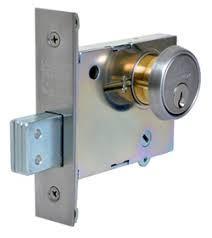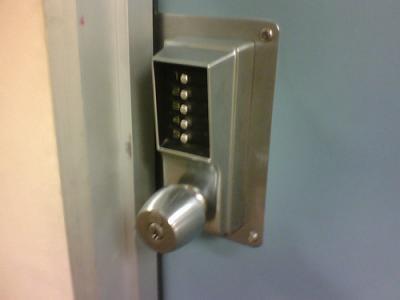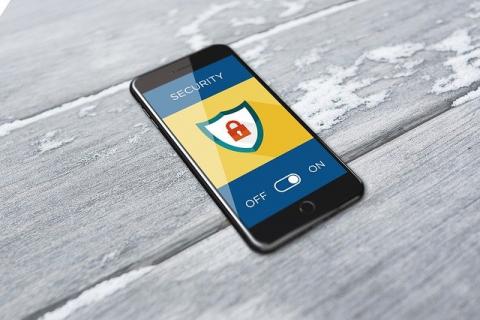A lock that you can count on to secure your belongings is one you can trust and rely upon. Find out which locks are considered the strongest.
There are many things to consider when choosing a lock for purchase. In addition to the main reasons we typically buy locks, most often we find that people want a lock that is not too bulky, sits comfortably on the door and is aesthetically pleasing overall. Additionally, most people are working within a budget when they are in the market for home goods and locks. While they want the best lock money can buy, they cannot afford to break the bank either.
Understandably, these are all important features to factor into the purchase of a lock. Still, it is important to realize that safety must come first, and above all else. Here, we will list a few options of the strongest, most effective locks on the market. Bear in mind however that in the end, it boils down to two main ingredients: customers being able to trust the locks they buy, as well as the security they are purchasing.
 How to Find the Best Locks on the Market
How to Find the Best Locks on the Market
Consumers are fortunate to have the guidelines set by the American National Standards Institute, or the ANSI, to determine which locks are best. The ANSI has established rigorous testing for locks and grades them on their quality, functionality, and durability. Door knobs, latches, bolts, and handles are also tested for their resistance to the elements, heavy usage, and the weight they can withstand.
Based on ANSI’s guidelines and their three-tiered grading system, we have learned that Grade I locks are the most effective and secure for residential doors, while Grade II and Grade III offer solid, but lower-level security. With so many locks that meet ANSI's standards on the market, however, it can still be difficult to know which one is right for your home. That is why 24/7 Locksmiths Near Me is here to help you choose the lock that is attractive, affordable and the best on the market.
Deadbolt Locks
Whether you purchase a single cylinder or double cylinder, deadbolts are by far one of the strongest, most reputable types of locks on the market. What makes them so sturdy is the fact that they are nearly impossible to pick or “jimmy” open and that they are, by definition, secured on to or even in to, the doors they are on.
The reason they are called *dead* bolts is that they do not have a spring action that allows for any inner recoil. Additionally, deadbolts offer two options of closure, as stated earlier, in the form of single and double cylinders. Single-cylinder deadbolts can be opened with a key on the outer door and by turning or pressing a button on the inner door. Double cylinders offer, as the name suggests, double the protection, as these deadbolts require a key to open both the inner and outer door.
Mortise Locks
Mortise locks are engineered to fit into the door’s frame when locked, through a faceplate and recessed pocket in the door jam. These locks are part of the doorknob or handle on the door, and operate with a key from both the inner and outer sides of the door. Mortise locks allow for a bit of flexibility in that you can disable the inner latch when you lock the outer door. In addition, the built-in deadbolt is engaged by simply turning the knob on the inner door.
These locks are highly mechanized as they require a lot of parts to work together in order to ensure proper usage and maintain a high level of security. And while they are part of a door handle or knob, they are in fact assembled strategically, piece by piece and not say, out of a ready-made box. This allows skilled locksmiths to assess, examine, and mobilize each segment during the installation process.
Keyless Locks
These locks can easily replace deadbolt and mortise locks when it comes to exterior door use, though some come with a deadbolt as well. Keyless locks are incredibly convenient as they do not require the use of a key and therefore are not susceptible to key damage or impairments to the keyway.
These locks are remarkably secure because owners can establish personalized key codes. In fact, some models allow you to set up an alternating code so that even would-be thieves who have the original code, cannot get in. In yet additional models, the keyless lock code can be programmed to open more than one door, all with the same code, enabling you to have to remember one set of numbers instead of the whole bunch!
 What do the Best Locks Have in Common?
What do the Best Locks Have in Common?
Whichever lock you choose, be mindful of the qualities below, as they are shared by the best on the market.
- Look for reputable, storied lock brands. Do your research and make sure that the lock you are having installed has a name like Yale, Medeco, Multi-T- Lock, ASSA, or Sargent. These brands are not exclusive and certainly, there are others that are probably just as good. Nevertheless, you want to go with quality and companies that have already established.
- Weather and damage resistance are, forgive the pun, key elements in lock security. If one strong rain or the jiggling of a doorknob disables your lock, you have the wrong one installed. Strong locks are meant to withstand more than just normal wear and tear and should never just fall apart.
- Is your lock ANSI certificated with a Grade of either I, II, or III? If so, you have a tried and tested lock on your hands. If your lock is not certified by the agency who sets the standards for locks, you should get another lock!
- Make sure your lock has a lifetime warranty, barring any damage that is far out of the norms for even extraordinary wear and tear.
Contact our locksmiths at any time of the day or night to discuss the best security for your home!
 Nationwide
Nationwide













 What do the Best Locks Have in Common?
What do the Best Locks Have in Common?





